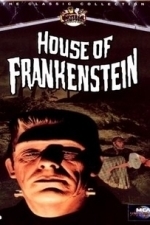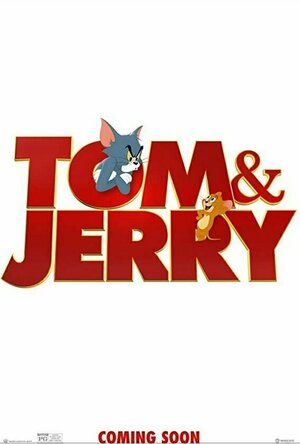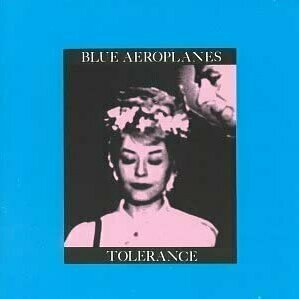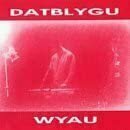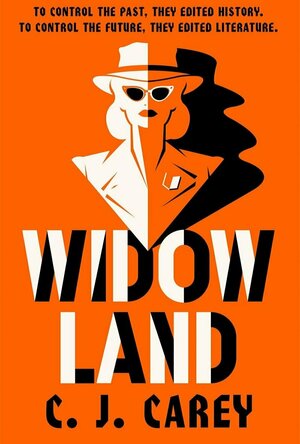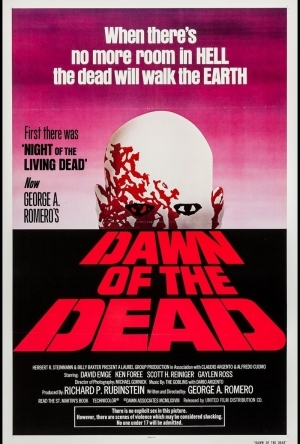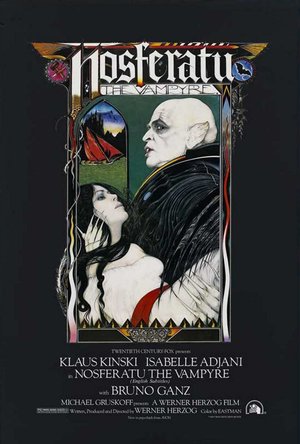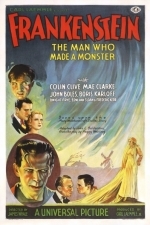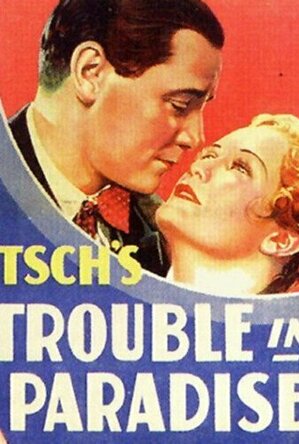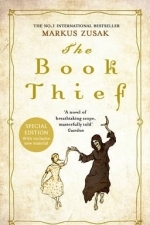Search
Search results
Matthew Krueger (10051 KP) rated House of Frankenstein (1944) in Movies
Jun 18, 2020 (Updated Jun 18, 2020)
Get The Gang All Together: The Crossover
House of Frankenstein- is the ultimate monster crossover. It has Frankenstein, Dracula played by John Carradine, the Hunchback and the Wolf-Man played by Lon Chaney Jr. and a mad scientist played by Boris Karloff.
This "monster rally" approach would continue in the following film, House of Dracula, as well as the 1948 comedy Abbott and Costello Meet Frankenstein.
The plot: After escaping from prison, the evil Dr. Niemann (Boris Karloff) and his hunchbacked assistant, Daniel (J. Carrol Naish), plot their revenge against those who imprisoned them. For this, they recruit the powerful Wolf Man (Lon Chaney), Frankenstein's monster (Glenn Strange) and even Dracula himself (John Carradine). Niemann pursues those who wrong him, sending each monster out to do his dirty work. But his control on the monsters is weak at best and may prove to be his downfall.
Frankenstein Meets the Wolf Man (1943) had been the first on-screen pairing of two Universal Studios monsters, but The House of Frankenstein was the first multi-monster movie. Early drafts of the story reportedly involved more characters from the Universal stable, including the Mummy, the Ape Woman, the Mad Ghoul, and possibly the Invisible Man. Working titles—which included Chamber of Horrors (a reference to Lampini's travelling horror show) and The Devil's Brood—emphasized the multi-monster nature of the story.
The multi-monster approach, which emphasized box office appeal over continuity, was used in House of Dracula the following year and later in Abbott and Costello Meet Frankenstein. The House of Frankenstein marked Glenn Strange's debut as the monster. Strange, a former cowboy, had been a minor supporting player in dozens of low-budget Westerns over the preceding 15 years. He reprised the role in House of Dracula and Abbott and Costello Meet Frankenstein, and cemented the popular image of the monster as shambling, clumsy, and inarticulate. Boris Karloff, who had moved on from playing the monster to playing the mad scientist, reportedly coached Strange on how to play the role.
Some continuity errors are evident in the finished film. After Dracula is thrown from the carriage, he looks over to where his coffin has landed; in a close-up, part of his mustache is gone. Also, when Talbot transforms into the Wolf Man for the final time, his hands lack fur.
Karloff's performance in this film is his last in Universal's classic horror cycle.
Its a fun entertaining movie starring the uninversal monsters.
This "monster rally" approach would continue in the following film, House of Dracula, as well as the 1948 comedy Abbott and Costello Meet Frankenstein.
The plot: After escaping from prison, the evil Dr. Niemann (Boris Karloff) and his hunchbacked assistant, Daniel (J. Carrol Naish), plot their revenge against those who imprisoned them. For this, they recruit the powerful Wolf Man (Lon Chaney), Frankenstein's monster (Glenn Strange) and even Dracula himself (John Carradine). Niemann pursues those who wrong him, sending each monster out to do his dirty work. But his control on the monsters is weak at best and may prove to be his downfall.
Frankenstein Meets the Wolf Man (1943) had been the first on-screen pairing of two Universal Studios monsters, but The House of Frankenstein was the first multi-monster movie. Early drafts of the story reportedly involved more characters from the Universal stable, including the Mummy, the Ape Woman, the Mad Ghoul, and possibly the Invisible Man. Working titles—which included Chamber of Horrors (a reference to Lampini's travelling horror show) and The Devil's Brood—emphasized the multi-monster nature of the story.
The multi-monster approach, which emphasized box office appeal over continuity, was used in House of Dracula the following year and later in Abbott and Costello Meet Frankenstein. The House of Frankenstein marked Glenn Strange's debut as the monster. Strange, a former cowboy, had been a minor supporting player in dozens of low-budget Westerns over the preceding 15 years. He reprised the role in House of Dracula and Abbott and Costello Meet Frankenstein, and cemented the popular image of the monster as shambling, clumsy, and inarticulate. Boris Karloff, who had moved on from playing the monster to playing the mad scientist, reportedly coached Strange on how to play the role.
Some continuity errors are evident in the finished film. After Dracula is thrown from the carriage, he looks over to where his coffin has landed; in a close-up, part of his mustache is gone. Also, when Talbot transforms into the Wolf Man for the final time, his hands lack fur.
Karloff's performance in this film is his last in Universal's classic horror cycle.
Its a fun entertaining movie starring the uninversal monsters.
Emma @ The Movies (1786 KP) rated Tom and Jerry (2021) in Movies
May 16, 2021
Reinventing the wheel has always come with some sceptical reactions from me, and Tom and Jerry has always been one of those treasured memories for me.
Jerry sets up a new home in the Royal Gate Hotel just before a high profile wedding is scheduled. When new hire Kayla is tasked with solving the hotel's new found mouse problem, she brings Tom into the fold to help.
Tom and Jerry is a classic I love and the thought of reimagining it in this way made me dubious to say the least. Traditionally you're only supposed to see humans from (roughly speaking) the knees down after all... and there are a lot of humans in this.
I'm not sure that the story here really matters all that much, Tom and Jerry should be about their action-y interactions. And there's the initial problem, because they should be the focus, and they're not. The human contingent takes up a hefty amount of screen time, and that to me sort of goes against the original concept.
The animation style isn't great, I have issues with CG animation, especially when it comes to things with a strong existing style. Once the film found its footing though I did find that I wasn't noticing it much, and in the end, dare I say it, I quite liked the successful animation of Toots and how it encompassed the stereotypical evils of feline nature.
When you combine the story with the cast (human and animated) you do get an amusing film, but it does feel a lot like the first Garfield film in how long it will be in people's minds.
What I will congratulate this film for is that it give you so wonderfully nostalgic moments, I loved seeing the "what's in my hands" gag... or maybe I'm easily pleased.
Chloë Grace Moretz and Michael Peña make for fun allies and adversaries to Tom and Jerry. But I think my favourite humans were Patsy Ferran as Joy the Bell Girl and Rob Delaney as the hotel manager. Though not on screen very often they broke up the "serious" moments nicely and added a much-needed break from everything else.
Tom and Jerry was exactly what I wanted, though I don't think it was what I expected. It won't be winning any awards, but I was pleasantly surprised by what it brought to the screen.
Originally posted on: https://emmaatthemovies.blogspot.com/2021/05/tom-jerry-2021-movie-review.html
Jerry sets up a new home in the Royal Gate Hotel just before a high profile wedding is scheduled. When new hire Kayla is tasked with solving the hotel's new found mouse problem, she brings Tom into the fold to help.
Tom and Jerry is a classic I love and the thought of reimagining it in this way made me dubious to say the least. Traditionally you're only supposed to see humans from (roughly speaking) the knees down after all... and there are a lot of humans in this.
I'm not sure that the story here really matters all that much, Tom and Jerry should be about their action-y interactions. And there's the initial problem, because they should be the focus, and they're not. The human contingent takes up a hefty amount of screen time, and that to me sort of goes against the original concept.
The animation style isn't great, I have issues with CG animation, especially when it comes to things with a strong existing style. Once the film found its footing though I did find that I wasn't noticing it much, and in the end, dare I say it, I quite liked the successful animation of Toots and how it encompassed the stereotypical evils of feline nature.
When you combine the story with the cast (human and animated) you do get an amusing film, but it does feel a lot like the first Garfield film in how long it will be in people's minds.
What I will congratulate this film for is that it give you so wonderfully nostalgic moments, I loved seeing the "what's in my hands" gag... or maybe I'm easily pleased.
Chloë Grace Moretz and Michael Peña make for fun allies and adversaries to Tom and Jerry. But I think my favourite humans were Patsy Ferran as Joy the Bell Girl and Rob Delaney as the hotel manager. Though not on screen very often they broke up the "serious" moments nicely and added a much-needed break from everything else.
Tom and Jerry was exactly what I wanted, though I don't think it was what I expected. It won't be winning any awards, but I was pleasantly surprised by what it brought to the screen.
Originally posted on: https://emmaatthemovies.blogspot.com/2021/05/tom-jerry-2021-movie-review.html
James Dean Bradfield recommended Tolerance by The Blue Aeroplane in Music (curated)
Gruff Rhys recommended Pyst by Datblygu in Music (curated)
Widowland is a really atmospheric thriller, set in an alternate timeline - one where the German National Socialists and the British reach a compromise in 1940 and become the Grand Alliance. This alliance reads more like occupation though. Britain doesn’t have it’s own government, all laws come from Germany, and Britain is ruled by a German, the Protector, Alfred Rosenberg.
Even though there’s a huge shortage of young men (they’ve been ‘shipped off’ to the rest of occupied Europe to ‘work’) and women greatly outnumber men, women are divided into categories, or castes. These depend on their age, heritage, reproductive status and physical characteristics, and each category is named after a significant woman in Hitlers life. Rose is a Geli, one of the elite. Young, beautiful, and most importantly, fertile.
I thoroughly enjoyed this and read it far too quickly. It had a black and white, 1950’s movie atmosphere about it, and I could easily picture the people and scenes in my head. It brought to mind The Man in the High Castle with regards to Occupation, and 1984 with regards to feeling as though you’re constantly watched - as well as the people being told how to react, think and live. This was especially evident in Rose’s job: she rewrites classics so that they’re in line with the regimes ideals: so no independent, strong females, and all the male leads are changed to Sturmbannführer (at least!).
The drudgery of everyday life made me think of how I envisaged life in the GDR - as well as only allowing state sanctioned literature, there was only one radio channel in Grand Alliance Britain, with some brave people listening to illegal foreign radio stations, knowing that this could result in extreme punishment.
When Rose goes to Widowland near Oxford (there are a few throughout the country) to find the source of a potential rebellion, she’s shocked to see older women living in abject poverty, only permitted to eat a subsistence diet and work menial jobs. But these women are intelligent, and they’re not happy in their state regulated lives. Between her reading of classic books and meeting these women, Rose begins to see what’s wrong with the world she has been living in, and this dawning realisation is so well described. We see how reading ‘subversive’ classics seems to get under her skin, and how she realises that the treatment of women is wrong in this Grand Alliance.
I could go on and on. I raced through this book, and I loved the ending, which came far too quickly!
Many thanks to Quercus for my copy of this book through NetGalley.
Even though there’s a huge shortage of young men (they’ve been ‘shipped off’ to the rest of occupied Europe to ‘work’) and women greatly outnumber men, women are divided into categories, or castes. These depend on their age, heritage, reproductive status and physical characteristics, and each category is named after a significant woman in Hitlers life. Rose is a Geli, one of the elite. Young, beautiful, and most importantly, fertile.
I thoroughly enjoyed this and read it far too quickly. It had a black and white, 1950’s movie atmosphere about it, and I could easily picture the people and scenes in my head. It brought to mind The Man in the High Castle with regards to Occupation, and 1984 with regards to feeling as though you’re constantly watched - as well as the people being told how to react, think and live. This was especially evident in Rose’s job: she rewrites classics so that they’re in line with the regimes ideals: so no independent, strong females, and all the male leads are changed to Sturmbannführer (at least!).
The drudgery of everyday life made me think of how I envisaged life in the GDR - as well as only allowing state sanctioned literature, there was only one radio channel in Grand Alliance Britain, with some brave people listening to illegal foreign radio stations, knowing that this could result in extreme punishment.
When Rose goes to Widowland near Oxford (there are a few throughout the country) to find the source of a potential rebellion, she’s shocked to see older women living in abject poverty, only permitted to eat a subsistence diet and work menial jobs. But these women are intelligent, and they’re not happy in their state regulated lives. Between her reading of classic books and meeting these women, Rose begins to see what’s wrong with the world she has been living in, and this dawning realisation is so well described. We see how reading ‘subversive’ classics seems to get under her skin, and how she realises that the treatment of women is wrong in this Grand Alliance.
I could go on and on. I raced through this book, and I loved the ending, which came far too quickly!
Many thanks to Quercus for my copy of this book through NetGalley.
LeftSideCut (3776 KP) rated Dawn of the Dead (1978) in Movies
Oct 27, 2020
Dawn of the Dead is considered by many to be the cream of the crop when it comes to zombie movies.
George Romero upped the ante with his second entry into the Living Dead series - bigger set pieces, more gore, more zombies (this time in colour!)
The true star of Dawn is the setting for a couple of reasons. The shopping mall is a fun and striking place to set a zombie film in, and plays a huge part in this films classic status, but most importantly, it's the epicenter of commentary running through the narrative, pointing fingers at capitalism and consumerism. A friend of mine (who deeply loves this movie) rightly pointed out that there's more to it than that, with the opening dealing with classism, and ultimately leading to discontent after the characters are comfortable in their situation, and have all they need. They're left with nothing left to do, nowhere to go, and it's genuinely quite bleak in that respect.
One of the greatest things for me about Dawn is the screenplay. It's pretty much air tight, it's clever, and has a handful of all time great lines. It also has some fine performances from the main cast, in particular Ken Foree. That dude is great in pretty much anything.
Also, the practical effects on display are fantastic (the zombie walking under the helicopter blades is a highlight) and is another example at Tom Savini's prowess.
However, despite all the positives, I just LIKE Dawn of the Dead, but I don't LOVE it. The main thing that turns me off is how goofy it is in parts. It verges on comedy at times (which I get, this being a semi-satire after all) but the silly music is a bit much for me. The film drags a fair bit during the mid section, and although I like all the actors, I find the characters they play hard to care about. I just don't think it's aged particularly well (although the message it carries is still as relevant as ever) and it's my least favourite of the original trilogy.
Although I have reservations, I still recognise how seminal Dawn of the Dead is. Without it, so many great movies wouldn't exist today, and it's easy to see why it was so groundbreaking at the time. I'm thankful it's exists, but it's ultimately a mixed bag for me (and I desperately hope my aformentioned friend doesn't hate me forever for feeling this way!)
George Romero upped the ante with his second entry into the Living Dead series - bigger set pieces, more gore, more zombies (this time in colour!)
The true star of Dawn is the setting for a couple of reasons. The shopping mall is a fun and striking place to set a zombie film in, and plays a huge part in this films classic status, but most importantly, it's the epicenter of commentary running through the narrative, pointing fingers at capitalism and consumerism. A friend of mine (who deeply loves this movie) rightly pointed out that there's more to it than that, with the opening dealing with classism, and ultimately leading to discontent after the characters are comfortable in their situation, and have all they need. They're left with nothing left to do, nowhere to go, and it's genuinely quite bleak in that respect.
One of the greatest things for me about Dawn is the screenplay. It's pretty much air tight, it's clever, and has a handful of all time great lines. It also has some fine performances from the main cast, in particular Ken Foree. That dude is great in pretty much anything.
Also, the practical effects on display are fantastic (the zombie walking under the helicopter blades is a highlight) and is another example at Tom Savini's prowess.
However, despite all the positives, I just LIKE Dawn of the Dead, but I don't LOVE it. The main thing that turns me off is how goofy it is in parts. It verges on comedy at times (which I get, this being a semi-satire after all) but the silly music is a bit much for me. The film drags a fair bit during the mid section, and although I like all the actors, I find the characters they play hard to care about. I just don't think it's aged particularly well (although the message it carries is still as relevant as ever) and it's my least favourite of the original trilogy.
Although I have reservations, I still recognise how seminal Dawn of the Dead is. Without it, so many great movies wouldn't exist today, and it's easy to see why it was so groundbreaking at the time. I'm thankful it's exists, but it's ultimately a mixed bag for me (and I desperately hope my aformentioned friend doesn't hate me forever for feeling this way!)
Matthew Krueger (10051 KP) rated Nosferatu the Vampyre (1979) in Movies
Oct 28, 2020 (Updated Oct 28, 2020)
The Vampire Among Them
Nosferatu The Vampyre- is a very slow movie. Very slow, for 90% of the time nothing happens and when some does happens its only for three minutes max. I always wanted to watch the oringal, never got a chance to, hopefully soon i will. As for this remake its so-so.
The plot: Jonathan Harker is sent away to Count Dracula's castle to sell him a house in Virna, where he lives. But Count Dracula is a vampire, an undead ghoul living off men's blood. Inspired by a photograph of Lucy Harker, Jonathan's wife, Dracula moves to Virna, bringing with him death and plague... An unusually contemplative version of Dracula, in which the vampire bears the cross of not being able to get old and die.
There are two different versions of the film, one in which the actors speak English, and one in which they speak German.
Herzog's production of Nosferatu was very well received by critics and enjoyed a comfortable degree of commercial success.
The film also marks the second of five collaborations between director Herzog and actor Kinski.
While the basic story is derived from Bram Stoker's novel Dracula, director Herzog made the 1979 film primarily as an homage remake of F. W. Murnau's silent film Nosferatu (1922), which differs somewhat from Stoker's original work. The makers of the earlier film could not obtain the rights for a film adaptation of Dracula, so they changed a number of minor details and character names in an unsuccessful attempt to avoid copyright infringement on the intellectual property owned (at the time) by Stoker's widow Florence. A lawsuit was filed, resulting in an order for the destruction of all prints of the film. Some prints survived, and were restored after Florence Stoker had died and the copyright had expired.
By the 1960s and early 1970s the original silent returned to circulation, and was enjoyed by a new generation of moviegoers.
In 1979, by the very day the copyright for Dracula had entered the public domain, Herzog proceeded with his updated version of the classic German film, which could now include the original character names.
Herzog saw his film as a parable about the fragility of order in a staid, bourgeois town. "It is more than a horror film", he says. "Nosferatu is not a monster, but an ambivalent, masterful force of change. When the plague threatens, people throw their property into the streets, they discard their bourgeois trappings. A re‐evaluation
of life and its meaning takes place."
Like i said its a decent movie.
The plot: Jonathan Harker is sent away to Count Dracula's castle to sell him a house in Virna, where he lives. But Count Dracula is a vampire, an undead ghoul living off men's blood. Inspired by a photograph of Lucy Harker, Jonathan's wife, Dracula moves to Virna, bringing with him death and plague... An unusually contemplative version of Dracula, in which the vampire bears the cross of not being able to get old and die.
There are two different versions of the film, one in which the actors speak English, and one in which they speak German.
Herzog's production of Nosferatu was very well received by critics and enjoyed a comfortable degree of commercial success.
The film also marks the second of five collaborations between director Herzog and actor Kinski.
While the basic story is derived from Bram Stoker's novel Dracula, director Herzog made the 1979 film primarily as an homage remake of F. W. Murnau's silent film Nosferatu (1922), which differs somewhat from Stoker's original work. The makers of the earlier film could not obtain the rights for a film adaptation of Dracula, so they changed a number of minor details and character names in an unsuccessful attempt to avoid copyright infringement on the intellectual property owned (at the time) by Stoker's widow Florence. A lawsuit was filed, resulting in an order for the destruction of all prints of the film. Some prints survived, and were restored after Florence Stoker had died and the copyright had expired.
By the 1960s and early 1970s the original silent returned to circulation, and was enjoyed by a new generation of moviegoers.
In 1979, by the very day the copyright for Dracula had entered the public domain, Herzog proceeded with his updated version of the classic German film, which could now include the original character names.
Herzog saw his film as a parable about the fragility of order in a staid, bourgeois town. "It is more than a horror film", he says. "Nosferatu is not a monster, but an ambivalent, masterful force of change. When the plague threatens, people throw their property into the streets, they discard their bourgeois trappings. A re‐evaluation
of life and its meaning takes place."
Like i said its a decent movie.
Andy K (10823 KP) rated Frankenstein (1931) in Movies
Sep 24, 2019
Everyone remembers the story of Frankenstein, or at least the first part. We all know Dr. Frankenstein assembles his "creation" from the bodies of the deceased and his assistant henchman brings him the brain from a criminal instead of a "normal" brain. His creation is then elevated to the heavens during a lightning storm and given the 1.21 Gigawatts of electricity he needs to regain life and drive the DeLorean back to the future! (Come to think of it, that might be a different film!) 😋
What you may not remember is the 2nd half of the film where the monster, presumed dead, wanders the countryside searching for the meaning of life and meets a young girl. The two sit by the shore trading flowers and tossing them into the water. The monster thinks it would be a good idea t toss the girl as well accidentally killing her.
After hearing about the atrocity, the townspeople form a lynch mob determined to hunt down and destroy the monster once and for all. The creature ends up at a lighthouse where his final fate is carried out.
Some other facts I may not have remember or never knew at all:
-Dr. Frankenstein's first name is Henry (I thought it was Viktor)
-Henchman' name Fritz (not Igor)
-Mary Shelley's opening writing credit is listed as Mrs. Percy B. Shelley (lame)
- The Monster's acting credit at the beginning is listed as "?" (not until the end credits is Boris Karloff given his due)
-No soundtrack during the film at all other than the opening and closing credits (I found out from the film historian DVD audio commentary in film music wasn't begun as a normal practice until sometime after this film's release in 1931)
Some other facts you may not remember is how excellent Boris Karloff really is as the monster. He takes you from hating him, to loving him, to feeling pity for him in the course of his limited screen time.
Also, for the time period, the set design and cinematography are breathtaking in glorious black and white. You really feel you are there with Frankenstein as he creates his masterpiece and watches quickly while he decidedly begins to regret his decision.
This time of year is fun to watch the spooky and scary. In this case, this classic is both and is not that long so you can watch more than one Frankenfilm tonight!
What you may not remember is the 2nd half of the film where the monster, presumed dead, wanders the countryside searching for the meaning of life and meets a young girl. The two sit by the shore trading flowers and tossing them into the water. The monster thinks it would be a good idea t toss the girl as well accidentally killing her.
After hearing about the atrocity, the townspeople form a lynch mob determined to hunt down and destroy the monster once and for all. The creature ends up at a lighthouse where his final fate is carried out.
Some other facts I may not have remember or never knew at all:
-Dr. Frankenstein's first name is Henry (I thought it was Viktor)
-Henchman' name Fritz (not Igor)
-Mary Shelley's opening writing credit is listed as Mrs. Percy B. Shelley (lame)
- The Monster's acting credit at the beginning is listed as "?" (not until the end credits is Boris Karloff given his due)
-No soundtrack during the film at all other than the opening and closing credits (I found out from the film historian DVD audio commentary in film music wasn't begun as a normal practice until sometime after this film's release in 1931)
Some other facts you may not remember is how excellent Boris Karloff really is as the monster. He takes you from hating him, to loving him, to feeling pity for him in the course of his limited screen time.
Also, for the time period, the set design and cinematography are breathtaking in glorious black and white. You really feel you are there with Frankenstein as he creates his masterpiece and watches quickly while he decidedly begins to regret his decision.
This time of year is fun to watch the spooky and scary. In this case, this classic is both and is not that long so you can watch more than one Frankenfilm tonight!
Phillip McSween (751 KP) rated Trouble In Paradise (1932) in Movies
Sep 30, 2019
Highly Entertaining
I love that I don’t have to score on a curve when watching the classics. Movies like Trouble In Paradise really do stand the test of time and are quality movies in comparison with even today’s standards. Sure, techniques may have been adjusted for today’s time, but the movie as is is truly a joy. in Trouble In Paradise, two crooks in love plan a heist against a perfume company executive, but the plot truly thickens when things don’t quite go as planned.
Acting: 10
When it comes to performances, each person played their part extremely well. However, I have to give the biggest nod to Herbert Marshall as Gaston. He handles the role with a suave nature that takes over every scene he appears in. He handles the emotional brunt of the movie in a way where you can truly see how torn he is.
Beginning: 10
Characters: 10
Gaston will make you laugh but he will also make you feel. He is a flawed character with many layers. I love that you really don’t know what he’s going to do next. While I thoroughly enjoyed the two female leads as well, Gaston carried the movie in my opinion.
Cinematography/Visuals: 10
The movie takes you all over Paris from grand hotels to expansive ballrooms. I enjoyed how director Ernst Lubitsch captures the sleight of hand from the thieves. There were also a few shots hit from different angles to capture point-of-view that I especially appreciated. Overall, the cinematography added to the beauty of the film.
Conflict: 10
Entertainment Value: 9
What makes this film so entertaining and separates it from other classics is that feeling of the unknown. I couldn’t guess what was going to happen if I tried and it made me appreciate the movie that much more. In addition, not only does it have its hilarious moments but some emotional ones as well. Trouble In Paradise takes you on a rollercoaster from start to finish.
Memorability: 10
Pace: 10
Plot: 10
Great story that keeps you guessing. Also, the movie proves that less is more with a plot that’s extremely easy to follow but also intuitive. In the end it’s a story that leaves much for interpretation and lets you decide how you think things unfold.
Resolution: 10
Overall: 99
From the beginning, this movie grabs your attention and holds it until the last shot. The more I thought about Trouble In Paradise, the more it captivated me. If you are looking for a quality classic, look no further.
Acting: 10
When it comes to performances, each person played their part extremely well. However, I have to give the biggest nod to Herbert Marshall as Gaston. He handles the role with a suave nature that takes over every scene he appears in. He handles the emotional brunt of the movie in a way where you can truly see how torn he is.
Beginning: 10
Characters: 10
Gaston will make you laugh but he will also make you feel. He is a flawed character with many layers. I love that you really don’t know what he’s going to do next. While I thoroughly enjoyed the two female leads as well, Gaston carried the movie in my opinion.
Cinematography/Visuals: 10
The movie takes you all over Paris from grand hotels to expansive ballrooms. I enjoyed how director Ernst Lubitsch captures the sleight of hand from the thieves. There were also a few shots hit from different angles to capture point-of-view that I especially appreciated. Overall, the cinematography added to the beauty of the film.
Conflict: 10
Entertainment Value: 9
What makes this film so entertaining and separates it from other classics is that feeling of the unknown. I couldn’t guess what was going to happen if I tried and it made me appreciate the movie that much more. In addition, not only does it have its hilarious moments but some emotional ones as well. Trouble In Paradise takes you on a rollercoaster from start to finish.
Memorability: 10
Pace: 10
Plot: 10
Great story that keeps you guessing. Also, the movie proves that less is more with a plot that’s extremely easy to follow but also intuitive. In the end it’s a story that leaves much for interpretation and lets you decide how you think things unfold.
Resolution: 10
Overall: 99
From the beginning, this movie grabs your attention and holds it until the last shot. The more I thought about Trouble In Paradise, the more it captivated me. If you are looking for a quality classic, look no further.
Becs (244 KP) rated The Book Thief in Books
Oct 2, 2019
I have no idea why I didn’t pick The Book Thief up sooner. It was honestly one of the best novels I’ve read so far this year. Scratch that, probably even one of the best novels I’ve read in my entire lifetime. Well, it might actually be a very close second to Six of Crows by Leigh Bardugo haha.
One thing that I enjoyed while reading was the narrator of the story (death himself) and all the little bits that are thrown throughout the text like this:
***THE ONLY THING WORSE THAN A BOY WHO HATES YOU***
A boy who loves you.
The author takes such a serious and sad topic and throws in love, sarcasm, and happiness. This was such a well rounded, beautiful and classic novel that I just couldn’t put it down. I loved every second of it, even though at first I was a little skeptical. But that’s only because I was in such a sour mood and reading slump when I started The Book Thief.
If you’re looking for a fast read, don’t read this. This took time to read and to understand. To process all that was going on. Markus Zusak doesn’t write The Book Thief in a morbid way that most books about the Holocaust are written, but instead with humor and love and happiness. The good and the bad all intermingled together to create an amazing book that I will be recommending to everybody from now on.
I cried. I laughed. I got pissed. I was stricken with grief, with pain, and with love. I felt that I went through almost every emotion that my body has while reading The Book Thief. And I honestly wanted more.
I wanted more of Liesel’s story after being the only one to survive on Himmel Street. I wanted spin-offs of Rudy and Liesel developing a relationship as they became teenagers and giving me that love story with a tragic back story. I wanted so much more but at the same time, I was content and happy with how the novel ended. I wouldn’t have changed anything about The Book Thief and I will most definitely be rereading it very soon. This is a book that will be cherished for an eternity.
If you haven’t picked up The Book Thief yet, please drop what you’re doing and read it. It will most defiantly change your life.
“And it would show me, once again, that one opportunity leads directly to another, just as risk leads to more risk, life to more life, and death to more death.”
One thing that I enjoyed while reading was the narrator of the story (death himself) and all the little bits that are thrown throughout the text like this:
***THE ONLY THING WORSE THAN A BOY WHO HATES YOU***
A boy who loves you.
The author takes such a serious and sad topic and throws in love, sarcasm, and happiness. This was such a well rounded, beautiful and classic novel that I just couldn’t put it down. I loved every second of it, even though at first I was a little skeptical. But that’s only because I was in such a sour mood and reading slump when I started The Book Thief.
If you’re looking for a fast read, don’t read this. This took time to read and to understand. To process all that was going on. Markus Zusak doesn’t write The Book Thief in a morbid way that most books about the Holocaust are written, but instead with humor and love and happiness. The good and the bad all intermingled together to create an amazing book that I will be recommending to everybody from now on.
I cried. I laughed. I got pissed. I was stricken with grief, with pain, and with love. I felt that I went through almost every emotion that my body has while reading The Book Thief. And I honestly wanted more.
I wanted more of Liesel’s story after being the only one to survive on Himmel Street. I wanted spin-offs of Rudy and Liesel developing a relationship as they became teenagers and giving me that love story with a tragic back story. I wanted so much more but at the same time, I was content and happy with how the novel ended. I wouldn’t have changed anything about The Book Thief and I will most definitely be rereading it very soon. This is a book that will be cherished for an eternity.
If you haven’t picked up The Book Thief yet, please drop what you’re doing and read it. It will most defiantly change your life.
“And it would show me, once again, that one opportunity leads directly to another, just as risk leads to more risk, life to more life, and death to more death.”
